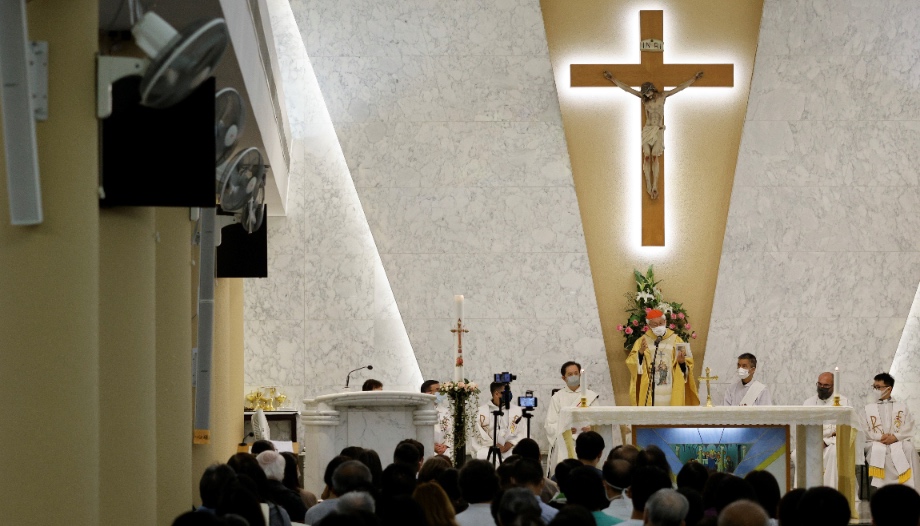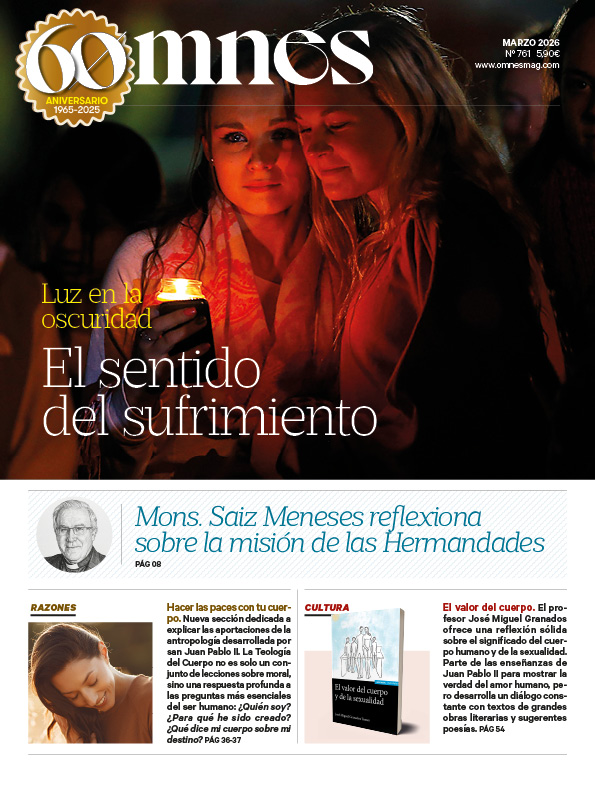The central theme of the summit is the Dignitatis HumanaeThe declaration of the Second Vatican Council, which expressed the support of the Catholic Church for the protection of religious freedom and established the basic norms for the relationship of the Church with the States.
This year's summit in Rome underscores the global reach of the initiative, which in 2021 was held at the University of Notre Dame itself.
"Religious freedom is a fundamental human right and its protection is a global issue," said G. Marcus Cole, dean and professor of law at Notre Dame Law School, in introducing the initiative. "Every person in the world has the God-given right to live their lives according to their convictions, with pride and without fear," Cole added.
Based on these principles, Notre Dame promotes and defends religious freedom for people of all faiths through scholarship, events and the work of its law school. At its core is the protection of the right to worship, the defense of sacred property from threats of destruction, the promotion of freedom of choice of ministers of faith, and the prevention of all discrimination against religious schools and teachings.
The goal of the summit is to stimulate discussion among scholars and religious leaders about the future of religious freedom in the United States and around the world. Such as the one scheduled today between two of today's leading contemporary philosophers and intellectuals: Cornel West of Union Theological Seminary and Robert P. George of Princeton University.
Notably, the 2022 Notre Dame Religious Liberty Award was presented to Mary Ann Glendon, professor emerita of law at Harvard Law School and former U.S. ambassador to the Holy See. Glendon was honored for her profound and innovative legal research and for her service to the United States and the Catholic Church, with a worldwide impact on the premise of religious freedom as a fundamental human right.
Steven Smith, professor of law and co-executive director of the Institute for Law and Religion at the University of San Diego School of Law, received the 2022 Religious Freedom Initiative Award.
Attacks on religious freedom
Religious freedom is under attack around the world. "Violence has risen to historic levels in the past decade, affecting nearly every religious group," said Samah Norquist, a scholar at the Wilson Center in Washington. "Believers of almost every faith - Christians, Muslims and Jews, Buddhists, Yazidis, Baha'is - have faced discrimination, harassment, repression and, of course, persecution by state and non-state actors as well as ideological movements," Norquist said. In the same vein was Nury Turkel, chair of the U.S. Commission on International Religious Freedom, a bipartisan, independent advisory body that monitors religious freedom abroad.
Turkel raised the alarm about the deterioration of religious freedom in China, where the government has continued to "vigorously pursue its policy of 'sinicization of religion'" and has demanded that religious groups and their adherents support the government and the ideology of the Chinese Communist Party (CCP).
Although China recognizes Buddhism, Catholicism, Islam, Protestantism and Taoism, adherents of religions with alleged foreign influence - such as Christianity, Islam and Tibetan Buddhism - and those of other religious movements, are especially vulnerable to persecution, said Turkel, an ethnic Uighur American lawyer.
Throughout 2021, Xinjiang authorities continued to arbitrarily detain Uighurs and other Turkic Muslims in internment camps and prison-like facilities on various religious grounds.
More than one million Uyghurs have been imprisoned in concentration camps for the mere fact of worshipping Allah and not Xi Xinping. They have been subjected to numerous abuses, including torture, rape, forced labor and murder. The "worst nightmare" for the CCP, Turkel noted, are communities that care about human rights and human dignity. A compromised religious population, Turkel argued, is also a threat to the Chinese government, because its authoritarian regime is incompatible with religious freedom.
The issue is not to allow abuses of religious freedom to go unnoticed, either by government action - as in the case of China - or by inaction, as in countries such as Nigeria, where persecution on religious grounds continues to increase.
"Research has shown," concluded the president of the U.S. Commission on International Religious Freedom, "that countries that support religious freedom have more vibrant and democratic political institutions, greater economic and social well-being, decreased tensions and violence, and greater stability. Nations that trample on or fail to protect fundamental human rights, including religious freedom, provide fertile ground for poverty and insecurity, war and terror, and violent and radical movements and activities."
"What are the religious freedoms we are concerned about?
At the opening of the summit, Dallin H. Oaks, President of the Quorum of the Twelve Apostles, called for
a global, multi-faith effort to defend and promote religious freedom in all nations of the world.
Here are his words: "What are the religious liberties we are concerned about? For religious communities, the U.S. Constitution guarantees freedom of association and the right to assemble; the right to determine new members; the right to elect leaders and key employees, including in related organizations; and the right to function as an organization. For individual believers, essential rights include the expression and exercise of religion and freedom from religious discrimination. In defense of these rights, we must stand together. Catholics, evangelicals, Jews, Muslims, Latter-day Saints and other faiths must be part of a coalition of religions that rescues, protects and promotes religious freedom around the world. Knowing that freedom can be achieved by supporting the freedom of those we consider our adversaries. So when we see that our interests are linked to those of all others, then the real work of religious freedom begins. Hence the need for believers to listen to others, empathize and resolve conflicts peacefully. Without compromising fundamental religious principles, but grasping what is truly essential to our free exercise of religion.
"In this way," according to Oaks, "we learn to live at peace with some laws we do not like and with some people whose values differ from ours. All that is necessary for unity is the shared conviction that God has commanded us to love one another and has granted us freedom in matters of faith".The Dignitatis humanae declaration on religious freedom was mentioned as a central point of the second international summit promoted by the University of Notre Dame. It is worth recalling some passages from it.
"The content of such freedom," the document states, "is that human beings should be immune from coercion by individuals, by social groups and by any human power, so that in religious matters no one should be compelled to act contrary to his conscience or prevented, within due limits, from acting in conformity with it: in private or in public, individually or in association."
It further declares that the right to religious freedom is indeed based on the very dignity of the human person as revealed by the word of God and by reason itself. This right of the human person to religious freedom must be recognized and enshrined as a civil right in the legal order of society."
A decisive contribution to the formulation of the document and to the definition of religious freedom as immunity had been that of Paul VI, who in the course of a public audience on June 28, 1965, describing religious freedom, had said: "You will see that a large part of this capital doctrine is summed up in two famous propositions: in matters of faith let no one be disturbed! Let no one be constrained" (nemo cogatur, nemo impediatur).
Speaking at the international conference "Religious Freedom in International Law and the Global Conflict of Values" (June 20, 2014), Pope Francis noted, "Religious freedom is not just freedom of private thought or worship. It is the freedom to live according to ethical principles resulting from the truth encountered, both in private and in public. This is a great challenge in the globalized world, where weak thinking - which is like a disease - also lowers the general ethical level, and in the name of a false concept of tolerance we end up persecuting those who defend the truth of man and its ethical consequences."
Today, in the light first of the pandemic and then of the war in Ukraine, there is a debate on de-globalization or the new globalization. The challenge, however, remains the same: to ensure respect for fundamental human rights, including religious freedom in all its manifestations and everywhere.







